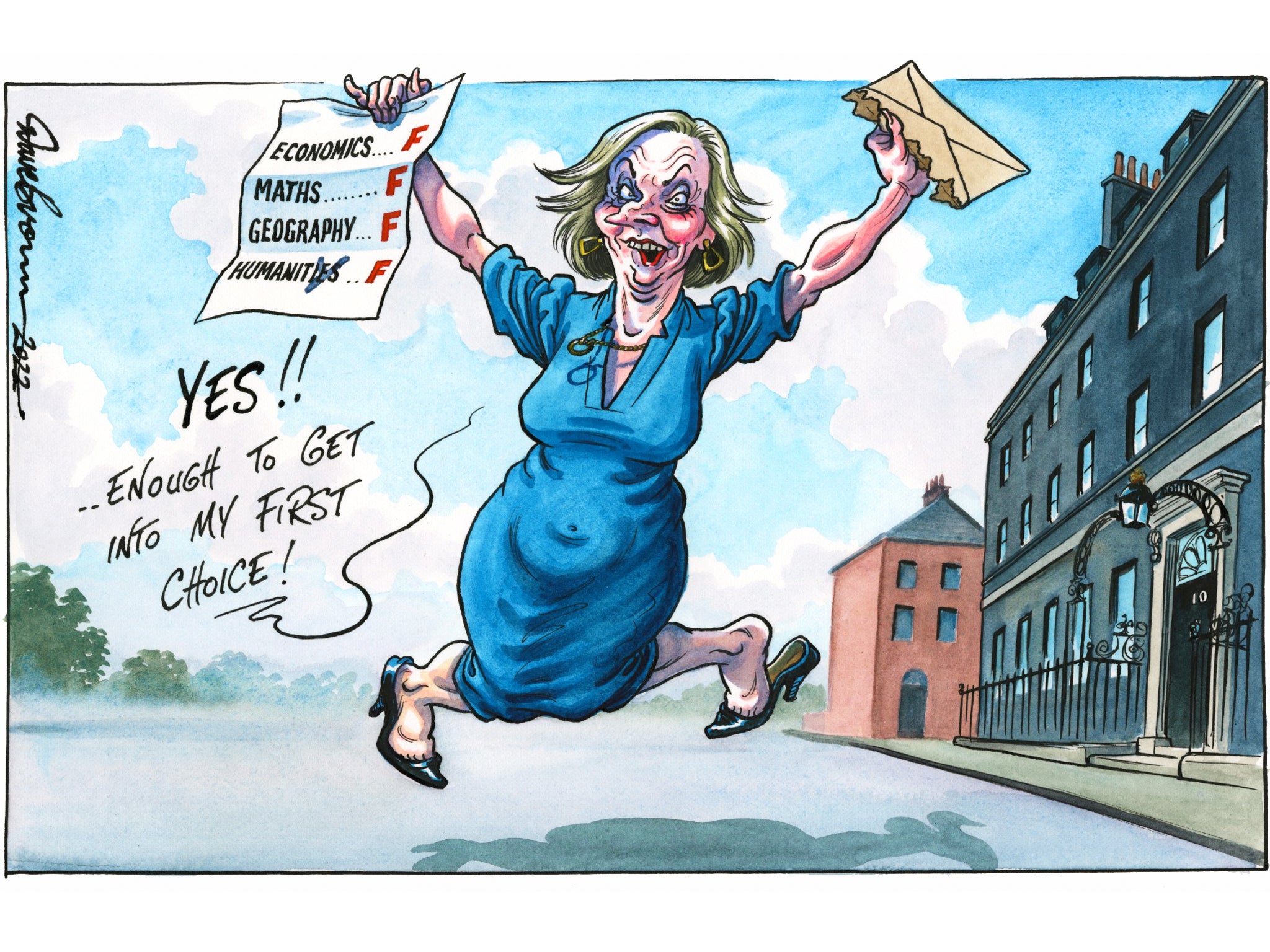No system of assessing academic performance can be perfect, but the one thing the coronavirus lockdowns proved is that exams are fairer than teacher-assessed grades.
That is why, although some students will be disappointed with their grades this week, there is a general acceptance that the return to externally marked exams was necessary.
Gavin Williamson, the former education secretary, made such a mess of lockdowns that exams were cancelled for two years running. There were arguments on both sides about whether those exams could have gone ahead, and The Independent’s view was that more could have been done to try to continue with them, but once they were cancelled there is no doubt that Mr Williamson mishandled the algorithm that was intended to keep grades comparable with previous years.
When that was abandoned, we ended up with the worst of all possible worlds: teacher-assessed grades, which put schools and colleges in an impossible position. As Sam Freedman, a former Department for Education official, put it, “the more rigorous they were, the more they harmed the life chances of their pupils, given that other centres would be more generous. It was a real-life prisoner’s dilemma at scale.”
The outcome was as predicted: grade inflation shot up, with private schools making the most of the flexibility afforded to them, and improving A-level results the most.
This year, the process has been partially reversed, with overall grades lower than last year’s, and private-school grades reduced the most. James Cleverly, the education secretary (for the moment), and Ofqual, the regulator, have taken the sensible decision to restore grades to their pre-pandemic levels over two years, so this week’s grades are roughly halfway between last year’s inflated assessments and the previous set of actual exams.
To keep up to speed with all the latest opinions and comment, sign up to our free weekly Voices Dispatches newsletter by clicking here
This is an important step in the right direction. There remain injustices done to large numbers of students, above and beyond the loss of schooling for two annual cohorts. This year’s students will not only have lost out on face-to-face teaching but will end up with lower grades than last year’s, although it is not clear yet whether more students will miss their preferred university places this year as a result of deferred entries from previous years.
But these have been minimised as much as is reasonably possible, and the return to externally marked exams is an essential part of trying to give all students the same life chances regardless of family background. As Mr Freedman said: “This is an iron rule of any public service – the more room you give for ambiguity, the more it will be exploited by those with money and knowledge of the system. Avoiding this is, after all, the reason exams were invented in the first place.”
We have as a society just conducted a huge experiment to confirm this proposition. For two years grades went up but instead of everyone having prizes, grades went up the most for students from higher-income backgrounds. This week we saw the start of a phased return to the fairer system that existed before. This is a welcome step towards greater social justice.




Join our commenting forum
Join thought-provoking conversations, follow other Independent readers and see their replies
Comments